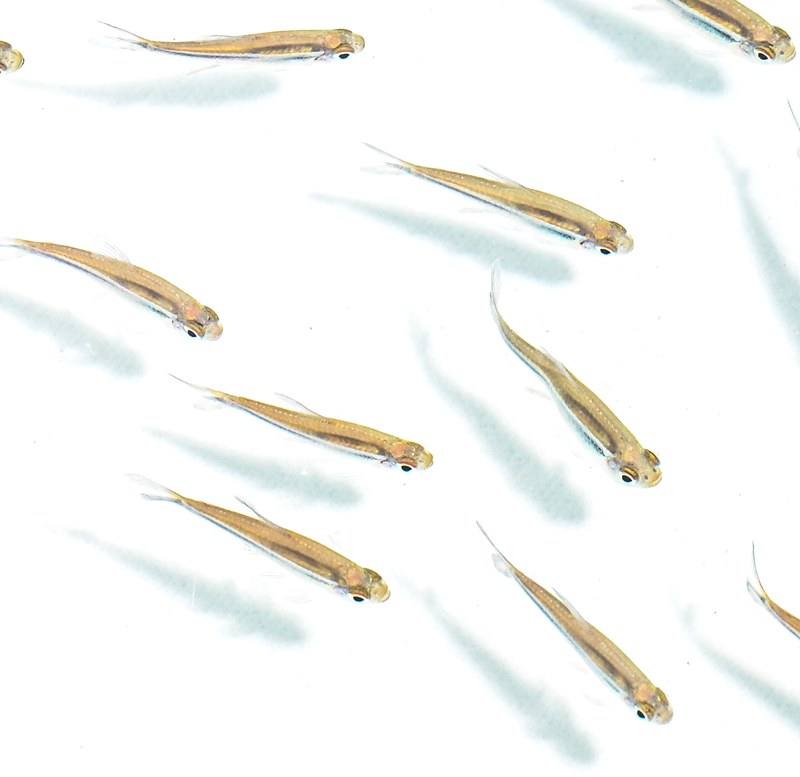Fish schools are regulated by selection on social interactions and speed-induced leadership
Apr 30, 2024
Physics department researchers contribute to a study on the behavior of schools of fish published as a cover story in the journal PNAS
Groups of animals interact socially to coordinate their movement and make collective decisions. These interactions typically manifest as attraction to distant individuals, repulsion to others too close, and alignment between neighbors to coordinate movement directions. Combining analyzes of experimental data from fish shoals with agent-based modeling, we found that social interactions are modulated by relative velocities between neighbors, where individuals tend to align only with faster neighbors and ignore slower ones. These selective social interactions can be linked to leader-follower relationships that change dynamically over time depending on the relative velocities between neighbors. These results provide a deeper understanding of the emergence of leadership as a function of variable and adaptive speeds of individuals, and a different perspective on movement coordination mechanisms in natural and artificial systems.
This work provides evidence of mechanisms for changes in attention in shoals of fish, which could be linked to a reduction in the cognitive load of individuals and facilitate more efficient and accurate collective decision-making processes. Our results suggest that information provided by fast moving individuals is more relevant. This makes biological sense, as individuals acting on the basis of privately acquired information, such as the perception of a predator or the presence of food, tend to move at higher speeds. Furthermore, from a perceptual point of view, fast moving signals on a background of slower movements stand out more. Finally, the lateral line of fish, which allows them to detect movement, vibration and pressure gradients in the surrounding water, also responds to the speeds of neighboring individuals.
The research has been published on the cover of the journal PNAS and can be found at the following link:

Share: